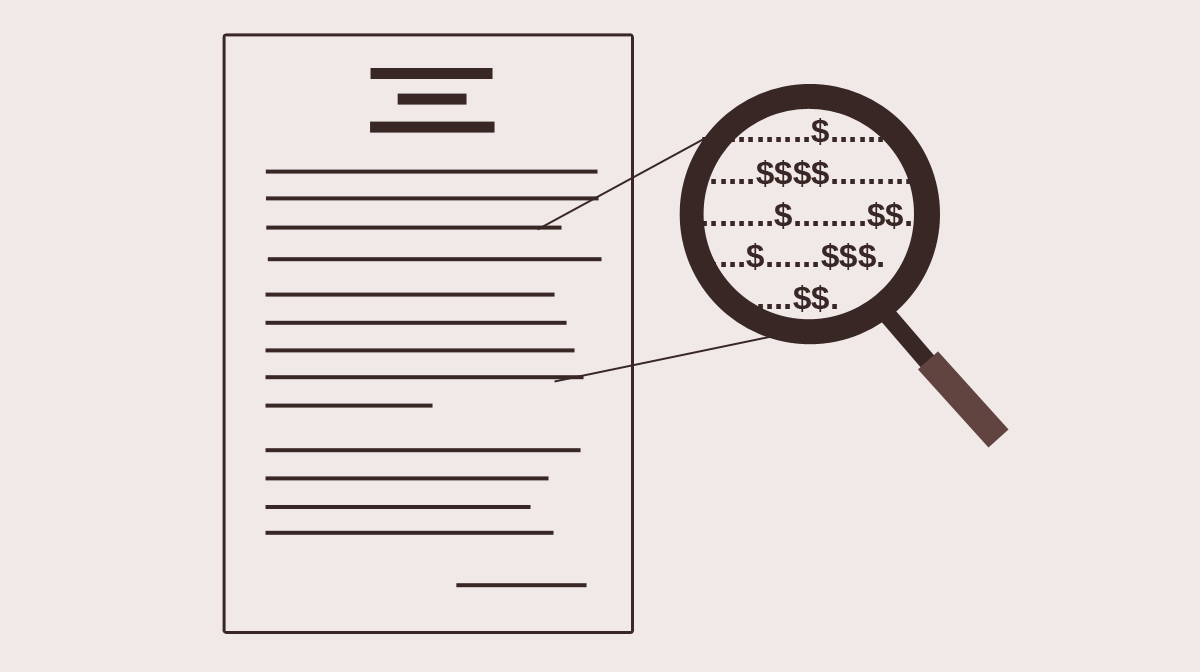A friend of mine is currently going through a difficult time trying to break an apartment lease due to an unexpected job change. At the core of the matter are fees totaling five months' rent in order for my friend to move out early, even though my friend has already found a suitable replacement tenant.
This got me thinking about the fine print in leases that can cost an unsuspecting tenant a whole lot of money at very inconvenient times. The difference of a word or a number can mean a major increase in the amount of money your landlord expects from you. So today we're going to review some very common "gotchas" that you may find in apartment leases so you know what to watch out for. We'll be providing specific pairs of sentences with small word differences, using a $1500 apartment for our base calculations. See if you can spot the differences before we tell you!
Clause A: "Rent is due on the first of the month. A late fee will be assessed if rent is not received by the fifth of the month."
Clause B: "Rent is due on the first of the month. A late fee will be assessed if rent is not received by the first of the month."
Potential Penalty: $720 over the course of a year in late fees. In Chicago there is no mandatory grace period on rent payments. If the lease says the rent is due on the first, it's due on the first.
Clause A: "Tenant shall provide $500 as an elevator holding deposit at the time of move-in."
Clause B: "Tenant shall provide $500 as an elevator holding fee at the time of move-in."
Potential Penalty: $500 for Clause B. Deposits are refundable. Fees are not.
Clause A: "Tenants must provide landlord with 30 days notice and a fee equal to one month's rent in order to terminate lease prior to its expiration."
Clause B: "Tenants must provide landlord with 60 days notice and a fee equal to one months' rent in order to terminate lease prior to its expiration."
Potential Penalty: $1500 for Clause B if you forget and assume that all landlords require one month's notice to break a lease.
Clause A: "Tenant shall bear the cost of all repairs valued at $500 or less."
Clause B: "Tenant shall bear the cost of all repeated repairs valued at $500 or less."
Potential Penalty: Cannot be estimated. It could be nothing or it could be off the charts. In the first clause, you're responsible the first time an item breaks. In the second, you're only responsible starting with the second time an item breaks.
Clause A: "Tenant shall provide a fee of $300 at move in."
Clause B: "Tenant shall provide a fee of $300 at each move in."
Potential Penalty: $300 for every roommate that moves in after you do for Clause B.
Clause A: "At expiration, tenant shall have the option to renew this lease for an additional 12 months for an increased rate of $1525."
Clause B: "At expiration, lease will automatically renew for an increased rate of $1525."
Potential Penalty: The full lease break fee for Clause B. Automatic renewal clauses are growing in popularity these days. The first clause is an "opt in" version, where the tenant must notify the landlord if they want to stay. The second is an "opt out" version, where the tenant must inform the landlord if they want to leave.
Clause A: "Tenant will provide an additional payment of $800 per month to maintain an option to purchase the property, of which 20% will be applied to the purchase price."
Clause B: "Tenant will provide an additional payment of $800 per month to maintain an option to purchase the property, of which 60% will be applied to the purchase price."
Potential Penalty: At least $3840 per year for clause A. These types of clauses are very common in rent-to-own leases.
Clause A: "Renter is responsible for electricity and gas."
Clause B: "Renter is responsible for common electricity and gas."
Potential Penalty: Depends on how many people live in the building and its size. Clause A means you're paying for your own power & gas. Clause B means you're paying for the power & gas for all the common areas in the building, including the laundry room, hallways, lobbies and parking lots.
So as you can see, it's very important to read your lease closely. Even one or two small words can make an enormous difference and you don't want to be caught by surprise. Have you ever caught a bit of fine print in one of your leases that could have caused you a lot of grief? Have you ever had to pay the price for not carefully reading a lease? Let us know in the comments!
RentConfident is a Chicago startup that provides renters with the in-depth information they need to choose safe apartments. Help us reach more renters! Like, Share and Retweet us!


